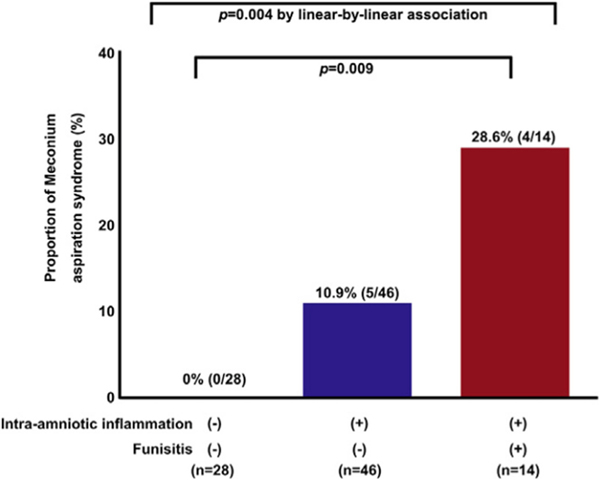Fig. 5.
Meconium aspiration syndrome (MAS) is more likely to occur in patients with meconium-stained amniotic fluid if intraamniotic inflammation and fetal inflammatory response syndrome ascertained by funisitis are present. Frequency of MAS in the context of intraamniotic inflammation and funisitis. Neonates exposed to both intraamniotic inflammation and funisitis were at significantly greater risk of MAS than newborns exposed to neither of these 2 conditions [28.6% (4/14) vs 0% (0/28), P = 0.009]. In contrast, newborns exposed to only intraamniotic inflammation without funisitis were not at greater risk of MAS than newborns exposed to neither of these 2 conditions [10.9% (5/46) vs 0% (0/28); P = 0.15]. MAS did not occur in the absence of intraamniotic inflammation. (Reproduced with permission from Lee J, Romero R, Lee KA et al. Meconium aspiration syndrome: a role for fetal systemic inflammation. Am J Obstet Gynecol 214:366.e1–9, 2016.).

